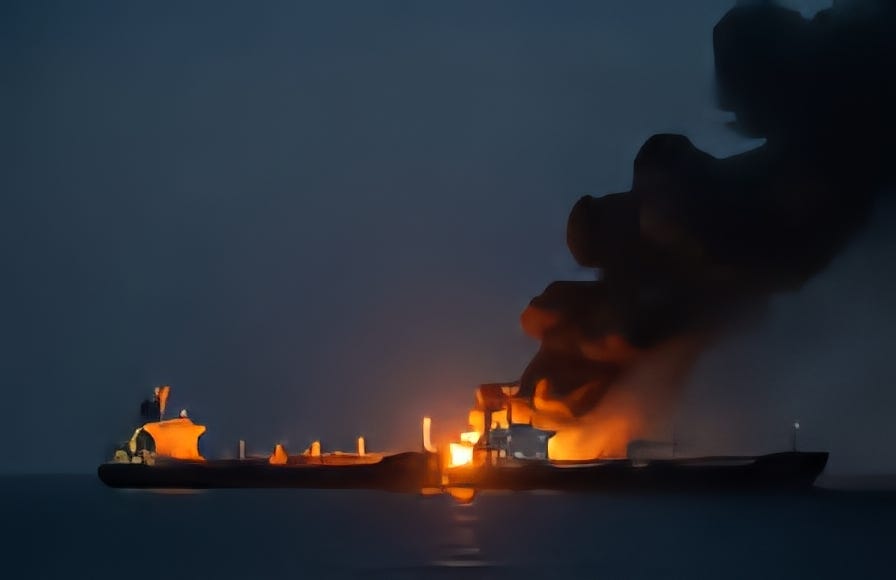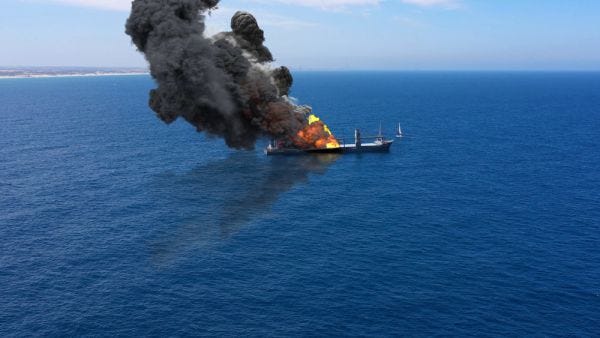A few days ago, two massive oil tankers collided just south of the Strait of Hormuz, one of the most strategically sensitive maritime corridors in the world. The MV Adalynn, a little-known tanker flagged under Belize with an inconsistent tracking record, collided with the MV Front Eagle, a Norwegian-operated VLCC carrying crude oil through the Gulf.
Both vessels caught fire. Both sustained visible damage. The crew of the Adalynn was evacuated by UAE authorities. The Front Eagle remained operational and extinguished its deck fire without evacuating. No injuries or fatalities have been reported.
The Adalynn’s history is harder to pin down. While not officially linked to any blacklisted operation, its AIS (automatic identification system) record shows gaps and irregularities common to vessels operating in less-regulated trade routes—often referred to as the “gray fleet.” These ships are sometimes involved in transshipment or sanctioned cargo routing, but without formal accusations, the only clear fact is this: the Adalynn’s presence in that location, at that time, raises valid questions about what went wrong.
Reports from maritime observers in the region confirm ongoing GPS jamming and navigational interference. At least a dozen vessels have logged signal disruptions in recent weeks—creating the conditions for disaster, even without hostile intent. Maritime authorities have not issued a final cause for the crash, but interference is widely suspected to be a contributing factor.
What makes this story more than a shipping accident is location and timing. The Strait of Hormuz is narrow, volatile, and essential—about 20% of global oil trade moves through it daily. Any interruption, even from an accident, sends immediate shockwaves through global energy markets. Freight rates spike. Shipping insurers get nervous. Governments watch radar screens more closely.
Adding fuel to the fire, Iran’s parliament just voted to approve the closure of the Strait. The final decision now rests with the Supreme National Security Council.
Stay tuned for updates.
The news cycle moves fast. The consequences don’t. Subscribe to Closer to the Edge to follow the stories that keep unfolding.
This post has been syndicated from Closer to the Edge, where it was published under this address.


